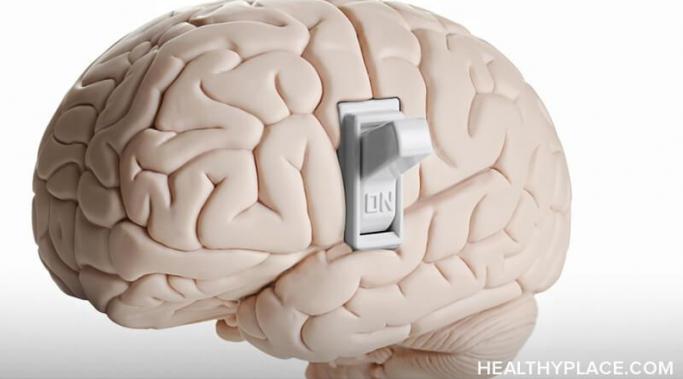I am a word-fetishist. I adore words. They are my playthings. They are my blankies. I generally mold them, shape them and occasionally break them at my leisure.
But I also respect words. I respect their meaning and their use outside the bounds of current politically correct, self-help thinking, but somehow the rest of the world wants to complain because I call a spade a shovel.
Breaking Bipolar
I have been through more bipolar treatments than I care to recall; probably everything you’ve heard of plus a bunch of bipolar treatments you haven’t. And yes, obviously, I have failed the vast majority of these bipolar treatments. And while not getting better is certainly nasty enough, it always feels like it’s my fault that the treatment didn’t work.
Over the years I’ve been treated for bipolar, I’ve come to the conclusion that when you sleep and when you wake (your circadian rhythm) is key in stability and wellness. If you do not wake up at the same time every morning and go to bed at the same time every night you are in for a world of hurt.
This is mostly my opinion though. There is some research on the matter, but nothing as conclusive as I feel about it. Or at least nothing that I knew about until I heard of the Chicago Psychiatry Associates’ Program in Psychiatric Chronotherapy. (Sounds complicated, but it isn’t. Stay with me.)
Earlier this month, I wrote about how to stay on psych medication. I gave tips and tricks to help you stay on track. In today's video, I show you my own twist on psych medication reminders.
Many of us with a mental illness have tried to “power through” it. We have tried to muscle through the pain without getting help of any kind. Most of us don’t want to admit we need help. Most of us don’t even want to admit we’re sick. We think that we’ll be fine without doctors and therapists and pills. We think that they are the enemy. We think we’re better off without them.
We are so ridiculously wrong.
I get all manner of comments here and many of them scrape against my bones. Because I know these people. Because I know their brains. Because I am these people.
Sometimes people think because I write or advocate or win awards I am not them, but it is precisely because I am them that I can do these things. It is precisely because I feel their desperation that I can truly write about it. One does write what they know, after all.
Normally I try to grab the reader's attention in the first few lines of the piece so that you'll want to read the rest. Something snappy, touching or pithy. Normally I try to make sure it's an interesting subject. Usually I try to provide some sort of universal appeal to the piece or at least a good quip.
But today, quite frankly, I'm talking about me.
Let me just come right out and say it: psychiatric medications suck. They just do. Waking up every morning with your first thought to choking down brightly-colored circles, ovals and squares is a bad way to start the day. Similarly, having your last act at night be downing medication to induce what used to be the natural process of sleep is equally unfortunate.
But psychiatric medications are a reality for people with a mental illness. They are important. In fact, for many of us, without them we would have no chance at a life at all.
So if we admit we hate them, but admit we have to take them, how does one manage to stay on psychiatric medications?
I had a VNS implanted about three years ago. The surgery involved two incisions, one under the left arm and one on the left lower front of my neck. My neurosurgeon promised a scar between 1-3 inches but it’s probably closer to four. Of course, I would much rather he get the surgery right and have a bigger scar than the other way around. Someone messes up your vagus nerve and you know about it, pretty much forever.
Vagus nerve stimulation (VNS) is exactly what it sounds like--stimulation of the vagus nerve in your neck. Stimulation takes place by using electrical impulses (a nice way of saying shocks). When the vagus nerve is stimulated, that stimulation is then carried to various other parts of the nervous system and this is what is thought to be its method of action. This stimulation may alter neurotransmitters like norepinephrine and GABA.
OK, I know, that’s complicated. In short, they zap a nerve in your neck and that’s carried to the brain where it does stuff.



